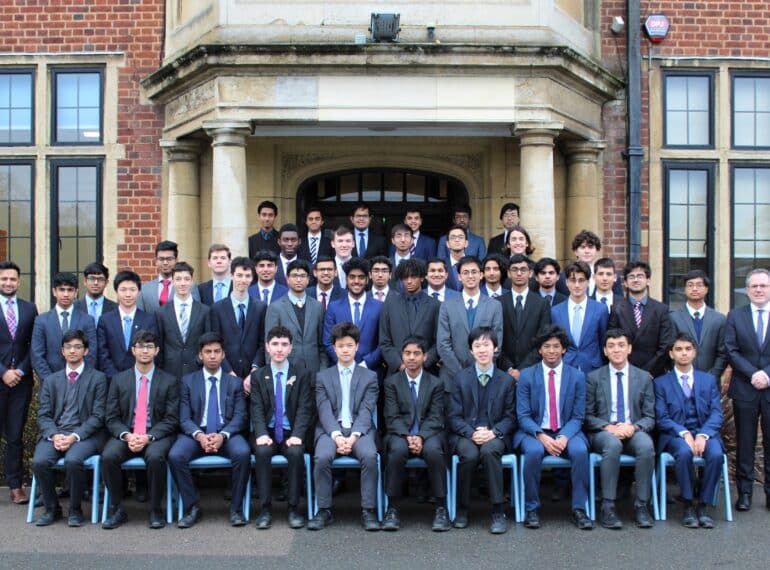
Forty-seven pupils have been offered places at Oxford and Cambridge this year, easily exceeding the previous QE record of 40.
Thirty-two offers have come from Cambridge and 15 from Oxford, spanning a huge range of subjects, from Engineering to Medicine and from Languages to Law.
Headmaster Neil Enright said: “This figure of 47 represents a magnificent achievement both for the boys themselves and for our dedicated team of staff, including those who teach them and those who have used their considerable experience to guide them through the application process. My heartfelt congratulations go to them all.
“To secure their offers, these pupils have demonstrated not just their mastery of their curriculum subjects, but the breadth of knowledge and the free-thinking scholarship that we seek to nurture in all our pupils.
“In March this year, we celebrate the 450th anniversary of the School’s foundation by royal charter: what better way to mark our anniversary year than with this outstanding performance!”
The Oxford total of 15 offers is itself a QE record, as is the total of 32 at Cambridge. QE’s Oxbridge offers come from some of the oldest colleges – such as Oxford’s Balliol, founded in 1263 – and by some of the newest, including Lucy Cavendish at Cambridge, which was established in 1965 and achieved recognition as a constituent college in 1977.
Subjects to be studied include some of the ancient universities’ most famous courses: two students will take Oxford’s Philosophy, Politics and Economics (PPE) degree, while four will read Natural Sciences at Cambridge.
There are offers across the arts, humanities and sciences, with the subjects gaining the highest number of offers as follows:
- Medicine (eight places)
- Mathematics (seven, plus one in combination with Computer Science)
- Engineering (seven, plus two more for Chemical Engineering and Biotechnology)
- Natural Sciences (four)
- Economics (two, plus two in combination with Management).
The 2022 School Captain, Theo Mama-Kahn, currently in Year 13, is among the 47, securing an offer to read French and German at Wadham College, Oxford.
Mr Enright added: “I am tremendously proud that, as a state school welcoming very able boys of all backgrounds, we have been able to secure such a high number of offers.
“As ever, there are some strong and highly capable candidates who nevertheless missed out on places at Oxford and Cambridge, but they, like so many of their Year 13 peers are being offered places at other leading universities in the UK and elsewhere.
“I look forward to all these Elizabethans going on to great success in their careers and lives, making a worthwhile and significant contribution to society.”


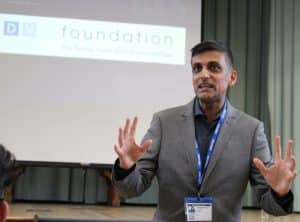 The WhyOhYou programme is run by the DVS Foundation – a philanthropic organisation established by the family of Old Elizabethan Priyan Shah (1991–1998).
The WhyOhYou programme is run by the DVS Foundation – a philanthropic organisation established by the family of Old Elizabethan Priyan Shah (1991–1998).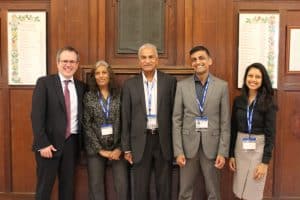 It is not the foundation’s only involvement with the School. Last summer, Priyan visited QE, together with his parents, Dhiru and Rami, to present DVS Foundation Awards to ten sixth-formers for excellence across various subjects and in extra-curricular involvement. The family business is a company specialising in UK institutional real estate investment. The foundation was set up in 2012 to formalise the family’s giving.
It is not the foundation’s only involvement with the School. Last summer, Priyan visited QE, together with his parents, Dhiru and Rami, to present DVS Foundation Awards to ten sixth-formers for excellence across various subjects and in extra-curricular involvement. The family business is a company specialising in UK institutional real estate investment. The foundation was set up in 2012 to formalise the family’s giving.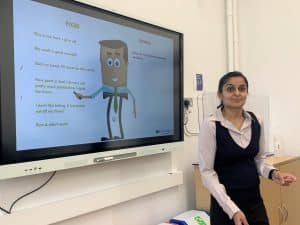 Eashan thanked the course facilitators: “They were both amazing. They were really kind and considerate, making a safe place for all of us to talk about what was on our minds about the topic at hand.
Eashan thanked the course facilitators: “They were both amazing. They were really kind and considerate, making a safe place for all of us to talk about what was on our minds about the topic at hand.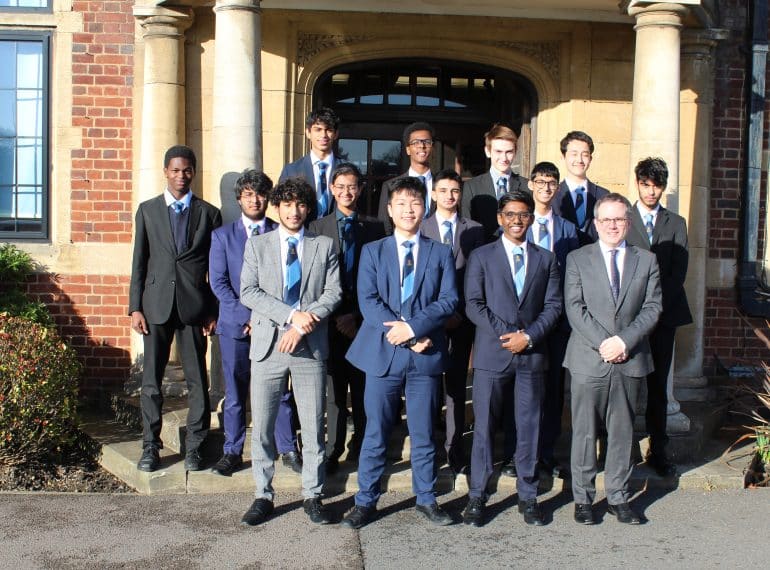
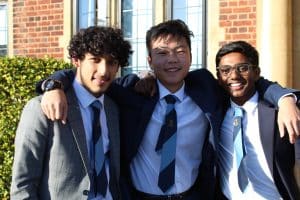 Mr Enright said today: “My congratulations go to all our prefects on their success. By virtue of their appointment in this momentous year for QE, they will, in a sense, themselves become part of the School’s history.
Mr Enright said today: “My congratulations go to all our prefects on their success. By virtue of their appointment in this momentous year for QE, they will, in a sense, themselves become part of the School’s history.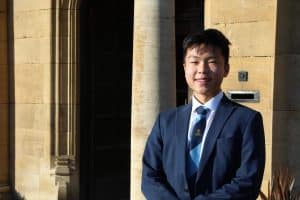 Darren is both a keen linguist and an enthusiastic engineer. He has won prizes and commendations in a number of language competitions, while he and his fellow Year 12 student, Yash Patel, were also named as recipients of highly prized Arkwright Scholarships after successfully navigating a long and exacting application process. As Arkwright Scholars, the pair will enjoy financial and mentoring support throughout their A-level studies.
Darren is both a keen linguist and an enthusiastic engineer. He has won prizes and commendations in a number of language competitions, while he and his fellow Year 12 student, Yash Patel, were also named as recipients of highly prized Arkwright Scholarships after successfully navigating a long and exacting application process. As Arkwright Scholars, the pair will enjoy financial and mentoring support throughout their A-level studies.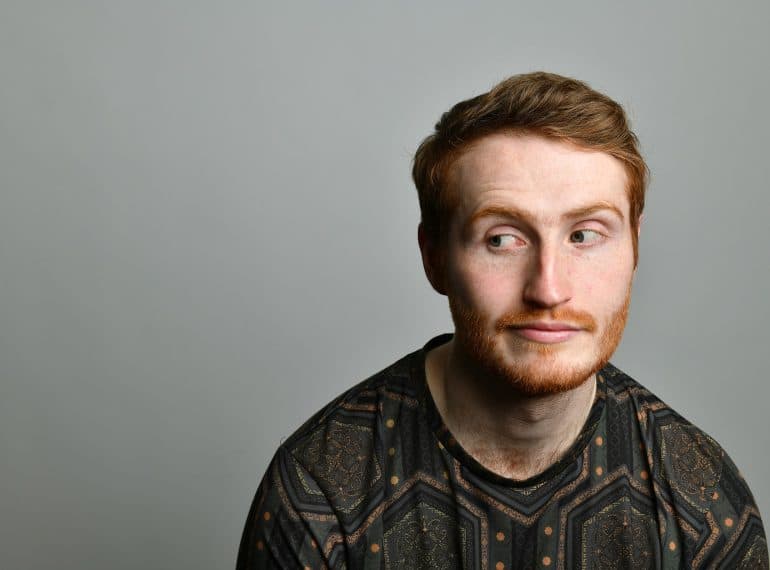
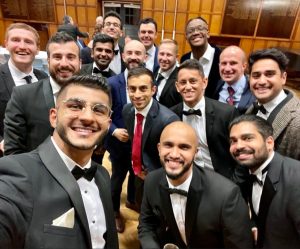 Alister, who was among the guests at this term’s OE Association Dinner, therefore feels a special impetus to encourage today’s pupils if they hold similar interests.
Alister, who was among the guests at this term’s OE Association Dinner, therefore feels a special impetus to encourage today’s pupils if they hold similar interests.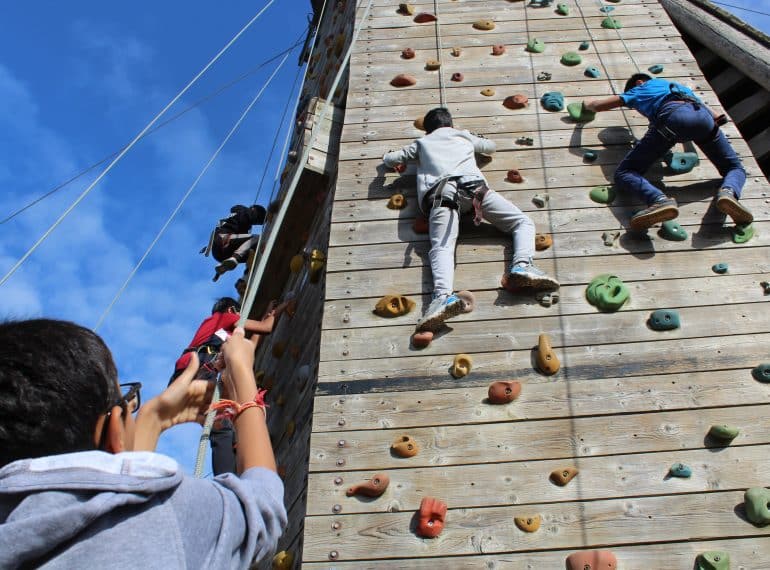
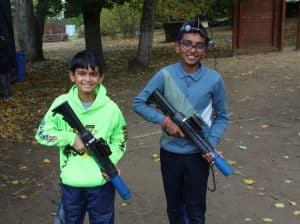 The visit to Stubbers Adventure Centre involved climbing, canoeing, archery and laser tag, with competition aplenty as the boys took on their friends and classmates.
The visit to Stubbers Adventure Centre involved climbing, canoeing, archery and laser tag, with competition aplenty as the boys took on their friends and classmates. The trip was part of the new QE Flourish enrichment programme, which Mr Bonham-Carter oversees.
The trip was part of the new QE Flourish enrichment programme, which Mr Bonham-Carter oversees.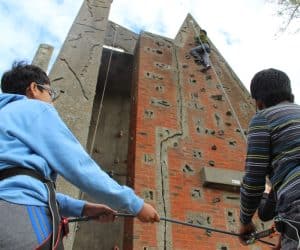 Alongside the healthy competition, some of the activities involved an element of trust. In the wall-climbing, for example, participants had to rely on their team-mates who were on the ground holding their ropes.
Alongside the healthy competition, some of the activities involved an element of trust. In the wall-climbing, for example, participants had to rely on their team-mates who were on the ground holding their ropes.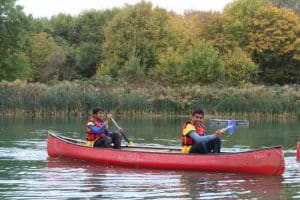 “On the coach journey home, I had my left-over snacks from lunchtime, thinking what fun I had and what memories I made.”
“On the coach journey home, I had my left-over snacks from lunchtime, thinking what fun I had and what memories I made.”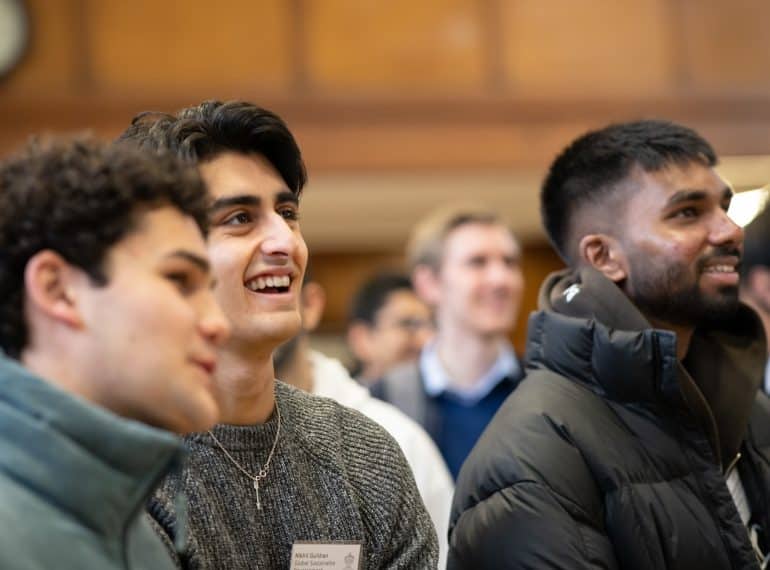
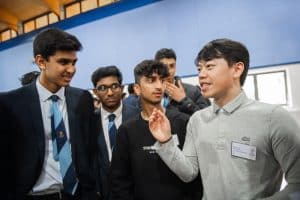 With the 2021 event moved online because of the pandemic, this year’s convention provided an eagerly awaited opportunity for the School’s newest alumni to meet face-to-face with Year 12s thinking about following in their footsteps.
With the 2021 event moved online because of the pandemic, this year’s convention provided an eagerly awaited opportunity for the School’s newest alumni to meet face-to-face with Year 12s thinking about following in their footsteps.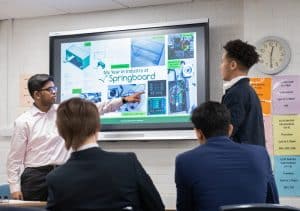 Most of the OEs attending the convention are currently in their first years on sought-after degree courses at leading universities, including Oxbridge and the Russell Group institutions.
Most of the OEs attending the convention are currently in their first years on sought-after degree courses at leading universities, including Oxbridge and the Russell Group institutions.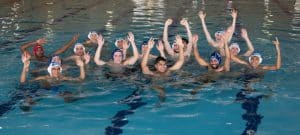 Then, in the afternoon 16 visiting old boys headed for the Martin Swimming Pool for the water polo friendlies.
Then, in the afternoon 16 visiting old boys headed for the Martin Swimming Pool for the water polo friendlies.